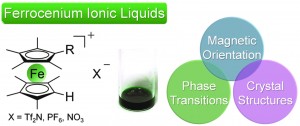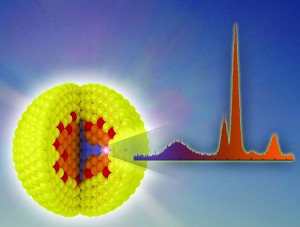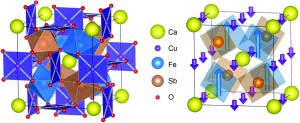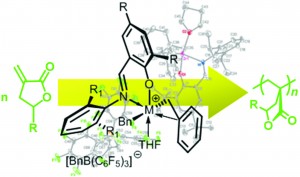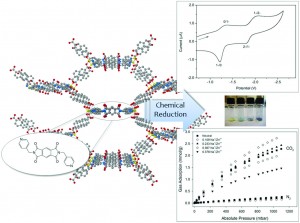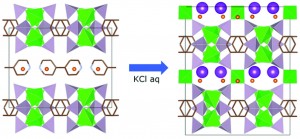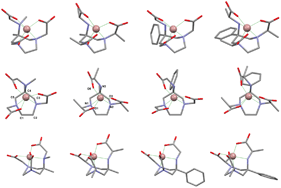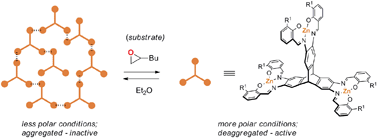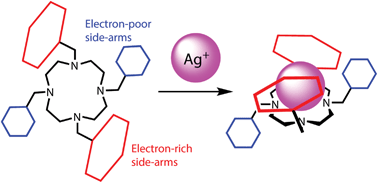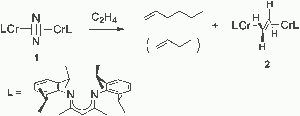Monitoring helical twists and effective molarities in dinuclear triple-stranded lanthanide helicates
Patrick E. Ryan, Laure Guénée and Claude Piguet
Dalton Trans., 2013,DOI: 10.1039/C3DT50941A, Paper
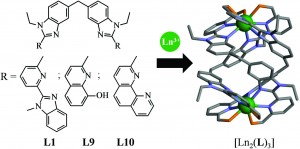
Free to access until 25th June
A novel VIVO–pyrimidinone complex: synthesis, solution speciation and human serum protein binding
Gisela Gonçalves, Isabel Tomaz, Isabel Correia, Luís F. Veiros, M. Margarida C. A. Castro, Fernando Avecilla, Lorena Palacio, Miguel Maestro, Tamás Kiss, Tamás Jakusch, M. Helena V. Garcia and João Costa Pessoa
Dalton Trans., 2013, DOI: 10.1039/C3DT50553G, Paper
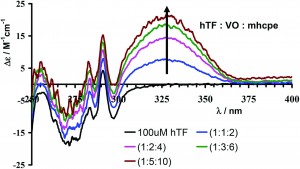
Free to access until 17th June
Structural transitions at the nanoscale: the example of palladium phosphides synthesized from white phosphorus
S. Carenco, Y. Hu, I. Florea, O. Ersen, C. Boissière, C. Sanchez and N. Mézailles
Dalton Trans., 2013, DOI: 10.1039/C3DT50686J, Paper
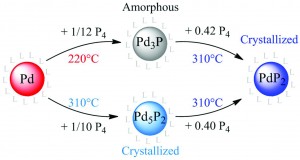
Free to access until 17th June
Synthesis of metal selenide colloidal nanocrystals by the hot injection of selenium powder
Stijn Flamee, Ruben Dierick, Marco Cirillo, Dirk Van Genechten, Tangi Aubert and Zeger Hens
Dalton Trans., 2013,DOI: 10.1039/C3DT50757B, Paper
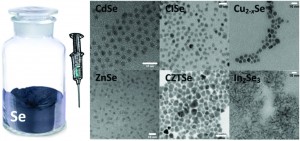
Free to access until 10th June
Metal ion selectivity of the vanadium(V)-reductase Vanabin2
Hiroki Kitayama, Sohei Yamamoto, Hitoshi Michibata and Tatsuya Ueki
Dalton Trans., 2013, DOI: 10.1039/C3DT50404B
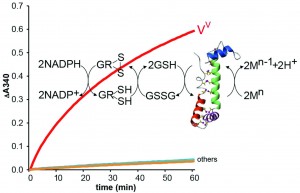
Free to access until 10th June
Platinum CCC-NHC benzimidazolyl pincer complexes: synthesis, characterization, photostability, and theoretical investigation of a blue-green emitter
Dalton Trans., 2013, DOI: 10.1039/C3DT50438G
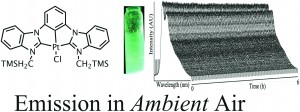
Free to access until 31st May
Synthesis of three-dimensional AgI@TiO2 nanoparticles with improved photocatalytic performance
Changhua An, Wen Jiang, Jizhuang Wang, Shutao Wang, Zhanhua Ma and Yanpeng Li
Dalton Trans., 2013, DOI: 10.1039/C3DT50736J
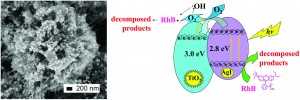
Free to access until 31st May
Infrared-light-induced photocatalysis on BiErWO6
Zhijie Zhang and Wenzhong Wang
Dalton Trans., 2013, DOI: 10.1039/C3DT50470K
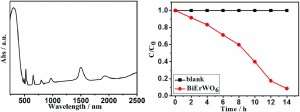
Free to access until 29th May
Visible light-harvesting trans bis(alkylphosphine) platinum(II)-alkynyl complexes showing long-lived triplet excited states as triplet photosensitizers for triplet–triplet annihilation upconversion
Lianlian Liu, Dandan Huang, Sylvia M. Draper, Xiuyu Yi, Wanhua Wu and Jianzhang Zhao
Dalton Trans., 2013, DOI: 10.1039/C3DT50496D
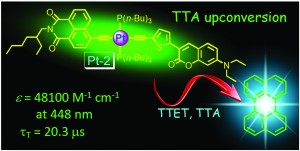
Free to access until 29th May
Structural trends in ten-vertex endohedral clusters, M@E10 and the synthesis of a new member of the family, [Fe@Sn10]3-
Tobias Krämer, Jack C. A. Duckworth, Matthew D. Ingram, Binbin Zhou, John E. McGrady and Jose M. Goicoechea
Dalton Trans., 2013, DOI: 10.1039/C3DT50643F
![Structural trends in ten-vertex endohedral clusters, M@E10 and the synthesis of a new member of the family, [Fe@Sn10]3− Structural trends in ten-vertex endohedral clusters, M@E10 and the synthesis of a new member of the family, [Fe@Sn10]3−](https://blogs.rsc.org/dt/files/2013/04/c3dt50643f-ga-289x300.jpg)
Free to access until 29th May
Aron J. Huckaba, Bei Cao, T. Keith Hollis, Henry U. Valle, John T. Kelly, Nathan I. Hammer, Allen G. Oliver and Charles Edwin Webster




















![Structural trends in ten-vertex endohedral clusters, M@E10 and the synthesis of a new member of the family, [Fe@Sn10]3− Structural trends in ten-vertex endohedral clusters, M@E10 and the synthesis of a new member of the family, [Fe@Sn10]3−](https://blogs.rsc.org/dt/files/2013/04/c3dt50643f-ga-289x300.jpg)
![Recyclable calix[4]arene–lanthanoid luminescent hybrid materials with color-tuning and color-switching properties](https://blogs.rsc.org/dt/files/2013/04/GA1.gif)


